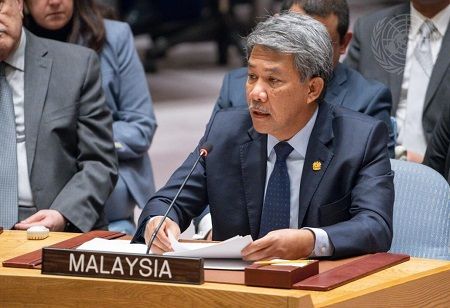- Russia to welcome more Malaysian students, especially in TVET and STEM fields, following high-level talks at the ASEAN Post-Ministerial Conference.
- Lavrov promises swift action on Malaysia's request for expanded university placements, signaling stronger educational ties.
- Russia considering SEANWFZ Treaty, aligning with ASEAN’s nuclear-free zone vision amid broader regional security discussions.
Russia has pledged to accept more Malaysian students entering the country, especially those for studies in technical and vocational education, in a new era of cooperation in education between the two countries. The move was announced by Foreign Minister Datuk Seri Mohamad Hasan after he met with Russian Foreign Minister Sergey Lavrov during the ASEAN Post-Ministerial Conference with Russia. The dialogue reflected a shared interest in deepening educational relations, particularly within the context of Malaysia's strategic national priority to consolidate Technical and Vocational Education and Training (TVET).
Mohamad disclosed that in the high-level talks, he articulated Malaysia's aspiration for greater placement opportunities in Russian universities for its students. The Russian reaction was significantly encouraging and prompt, with Lavrov having allegedly promised, 'Write me a letter, and I'll take care of it', Such straightforward guarantee from one of the globe's great powers reflects a very encouraging move for Malaysian students looking for advanced studies overseas, especially in the area of science, engineering, and technology where Russia has long experience.
Apart from educational collaboration, the discussion also broached important regional security issues, particularly that of the Southeast Asia Nuclear Weapon-Free Zone (SEANWFZ) Treaty. Mohamad declared that Russia is weighing the signing of the treaty that would bring it in line with the ASEAN community's nuclear disarmament and non-proliferation objectives. Russia, being one of the five recognized nuclear-weapon states under the Treaty on the Non-Proliferation of Nuclear Weapons (NPT), has not supported the SEANWFZ yet but its reconsideration is regarded as an important act of support for regional peace and stability.
This follows China announcing its willingness to sign the SEANWFZ Treaty without reservations and the agreement by Timor-Leste to accede to the treaty at the next ASEAN Summit held in October. The United States, however, is currently reviewing its position on the issue. First signed on 15 December 1995 and registered with the United Nations in 1997, the SEANWFZ Treaty articulates ASEAN's shared vision to make Southeast Asia a region of peace, freedom, and neutrality, which is nuclear-weapons-free. Russia's possible participation would further enhance the treaty's international relevance.

